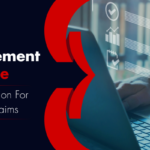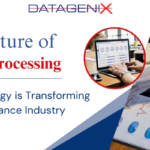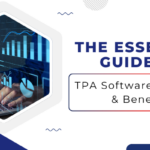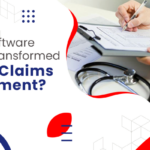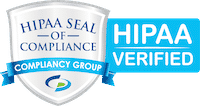Claims Software Systems: The Future of Smart Claims Handling
April 23, 2025
In the rapidly evolving landscape of the insurance industry, the adoption of modern technology is becoming increasingly imperative for staying competitive and responsive to the dynamic needs of customers. One area where this transformation is particularly noticeable is in claims processing. This blog explores the drawbacks of legacy claims software, the emergence of modern technological solutions, and the strategic advantages of making the shift.
Understanding Legacy Technology in Insurance
Inflexibility
Legacy claims software is often characterized by its rigid and inflexible nature. These systems are built on outdated architectures that struggle to adapt to the changing demands of the industry. As a result, insurance companies find themselves constrained by technology that hinders innovation and agility.
Maintenance Complexities
Maintaining legacy systems can be a cumbersome task. As technology advances, legacy software becomes increasingly challenging and expensive to support. The lack of compatibility with modern infrastructure and the need for specialized expertise make maintenance a significant burden for organizations relying on outdated technology.
The Emergence of Modern Technological Solutions in Insurance
The limitations of legacy systems have paved the way for the rise of modern claims solutions. These innovative technologies are designed to address the shortcomings of their predecessors and offer a myriad of benefits to insurance companies.
Enhanced Automation
Modern claims solutions leverage advanced automation to streamline and expedite the claims process. Automation reduces manual intervention, minimizes errors, and accelerates claims settlement. This not only enhances operational efficiency but also contributes to a quicker and more satisfying customer experience.
Data Analytics Capabilities
Data is a powerful asset in the insurance industry. Modern claims software harnesses the power of data analytics to derive meaningful insights. By analyzing large datasets, insurers can make informed decisions, identify trends, and proactively address emerging risks. This data-driven approach enhances risk management and contributes to more accurate underwriting.
Focus on Customer-Centric Approaches
Customer expectations are evolving, and insurance companies need to keep pace. Modern claims solutions prioritize customer-centric approaches, offering features such as self-service portals, real-time updates, and personalized communication. This not only improves customer satisfaction but also strengthens brand loyalty.
Strategic Benefits of Embracing Modern Solutions in Insurance
Realizing Cost Efficiencies through Modern Technologies
While the initial investment in modern claims solutions may seem substantial, the long-term cost efficiencies are undeniable. Automation reduces the need for manual labor, streamlines processes, and minimizes the risk of errors. Over time, these efficiencies translate into significant cost savings for insurance companies.
Elevating Customer Experiences with Advanced Solutions
The modern consumer expects a seamless and convenient experience throughout the insurance process. Modern claims solutions facilitate a smoother, more transparent, and efficient claims journey. From faster claims processing to enhanced communication channels, these advancements contribute to a positive customer experience.
Ensuring Compliance with Evolving Regulatory Standards
The regulatory landscape in the insurance industry is continually evolving. Modern claims software is designed with adaptability in mind, ensuring that insurers can easily comply with new regulations. This flexibility is a crucial advantage in an industry where non-compliance can lead to severe consequences.
Navigating the Shift: From Legacy Systems to Modern Technology
Implementing Best Practices for a Smooth Transition
The transition from legacy systems to modern technology requires careful planning and execution. Insurance companies must adopt best practices to ensure a smooth migration. This includes conducting a comprehensive assessment of current systems, involving key stakeholders in the decision-making process, and creating a phased implementation plan.
Tackling the Hurdles in Moving Away from Legacy Systems
Transitioning away from legacy systems may encounter resistance from within the organization. Addressing concerns related to data migration, employee training, and system integration is essential. A robust change management strategy can help alleviate fears and ensure a successful transition.
A Modern Claims Solution at Your Fingertips
As insurance companies embark on the journey of modernization, choosing the right claims solution is paramount. A modern claims solution should not only address current needs but also be scalable and adaptable to future challenges. Cloud-based solutions, for instance, offer the flexibility and scalability needed to meet the evolving demands of the insurance industry.
Bottom Line
In a rapidly evolving industry, the importance of modernizing claims processing cannot be overstated. Legacy systems, with their inherent limitations, hinder growth and innovation. By embracing modern claims solutions, insurance companies can unlock new possibilities, enhance operational efficiency, and deliver superior customer experiences. The shift from legacy technology to modern solutions is not just a technological upgrade; it is a strategic imperative for those aiming to navigate the future of insurance successfully. As the industry continues to transform, the adoption of advanced claims software will undoubtedly be a defining factor in the success of insurance companies in the years to come.
How Health Claims Management Software Transforming The Industry?
February 7, 2025How Claims Software Can Transform Your Claims Process?
January 29, 2025The Need For Healthcare Claims Management Software
January 13, 2025Reasons You Should Invest in Claims Management Software
January 7, 2025The Essential Guide To TPA Software Features & Benefits
December 24, 2024Claims Management Software: Key To Streamlining Your Business
December 18, 2024How TPA Software Solutions Transformed Medical Claims Management?
November 20, 2024
